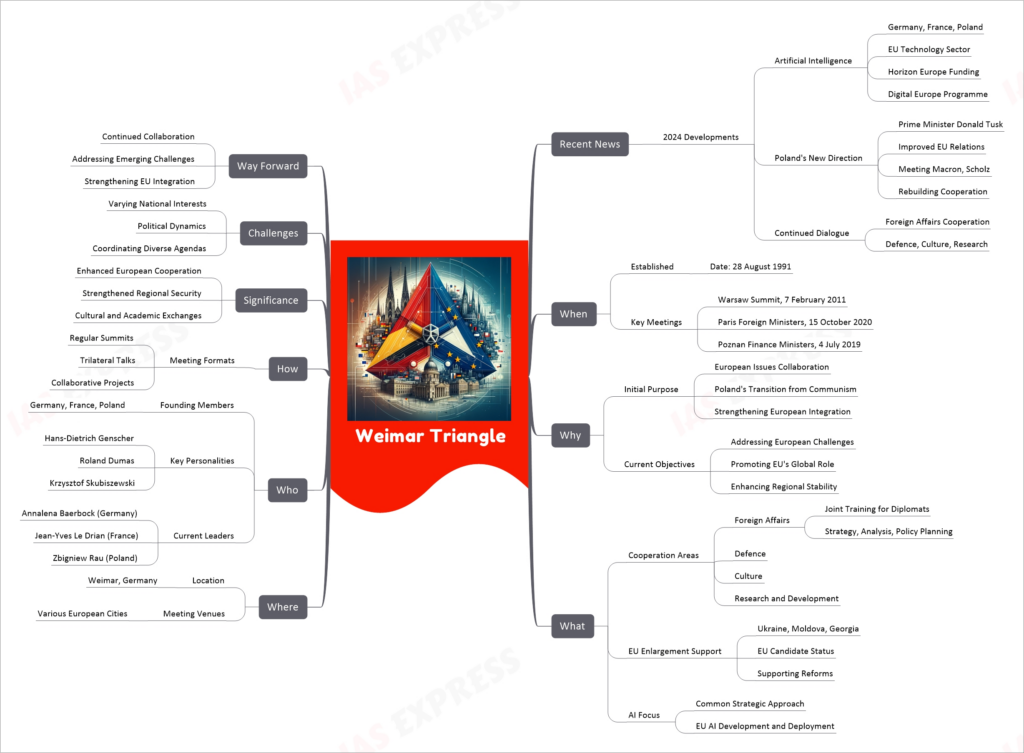Weimar Triangle

The Weimar Triangle is a trilateral group formed by Germany, France, and Poland in 1991. Initially aimed at supporting Poland’s transition post-communism and strengthening European integration, it now focuses on a broader range of issues including foreign affairs, defense, culture, and research. Recent developments include a focus on Artificial Intelligence within the EU, with significant funding and strategic initiatives. Regular meetings at various levels (heads of state, foreign ministers, finance ministers) facilitate cooperation. The Weimar Triangle has evolved to address current European challenges, support EU enlargement, and contribute to regional stability and security.

